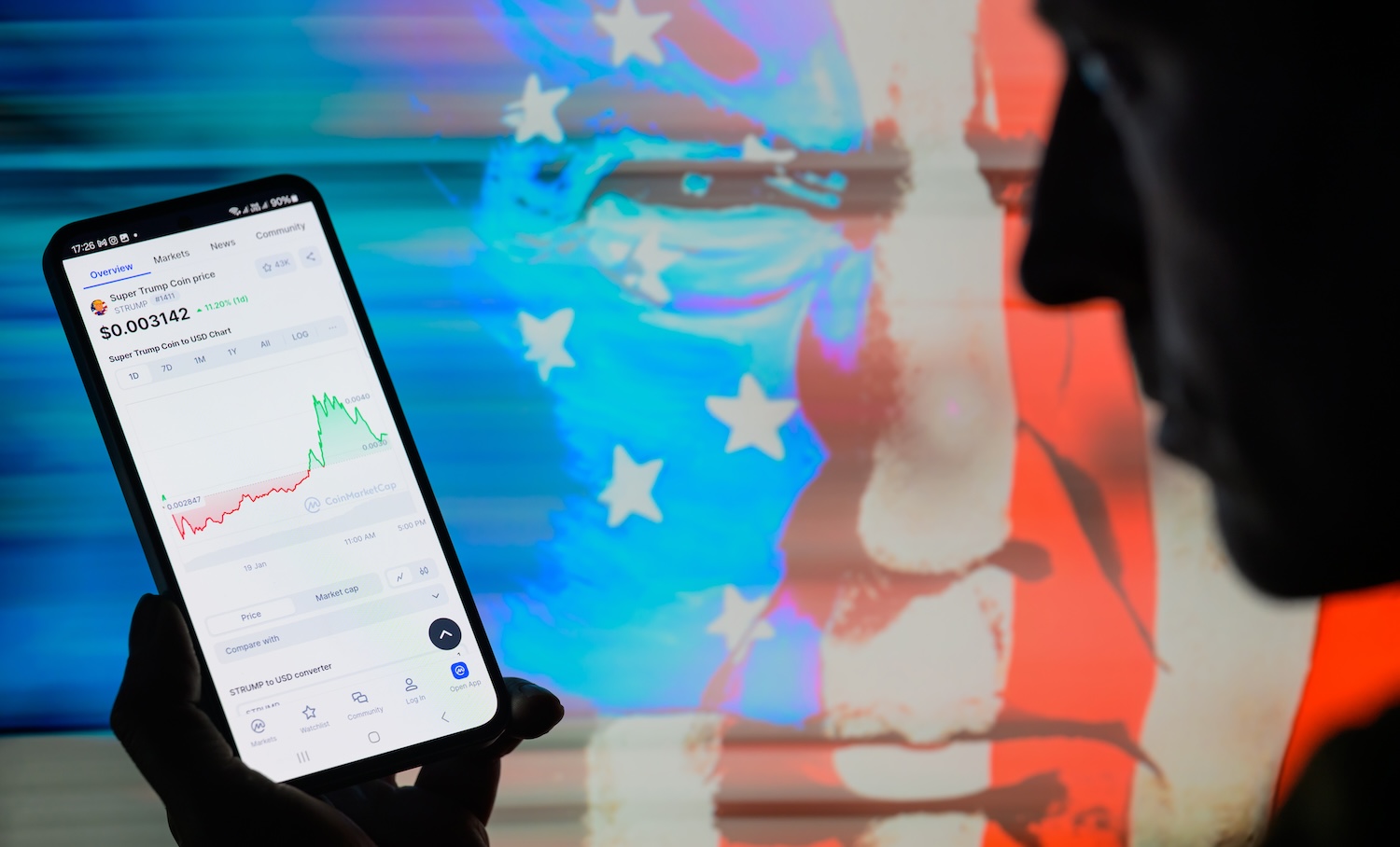On Dec. 4, President-elect Donald Trump announced that Bush-era Securities and Exchange Commissioner and former FTX advisor Paul Atkins would reprise his old role in the new administration. The next day, the price of a bitcoin exceeded $100,000 for the first time, a clear sign that the fourth cryptocurrency boom was on and that the incoming Trump administration would make good on his campaign promises to loosen the industry's regulatory reins. The days of federal skepticism and persecution were over. The industry rejoiced. Its planet-killing money-laundering apparatus would finally be legitimated.
Amid the broader horrors unveiled over inauguration weekend, Trump also launched a pair of memecoins; by the time the former crypto skeptic was inaugurated a few days later, the fully diluted value of $TRUMP and $MELANIA tokens had stabilized near a combined $44 billion. Instead of getting what they wanted on the first day of the Trump presidency, the crypto traditionalist wing was surprised. Many of its members were furious, with Mark Cuban worrying that "people will think memecoins are the foundation of the crypto industry," and Lead Lag Report's Michael Gayed decrying "a general level of disgust" with the launch. "I do believe this puts into question some of Trump's credibility when we have a president-elect enrich himself just before inauguration and make a mockery of an entire ecosystem," Gayed told the Wall Street Journal.
I would argue that, rather than making a mockery of the space, Trump has actually created the first functional use case for cryptocurrency: the facilitation of frictionless bribery. You don't even need to pull the rug if you also own the rug factory.
The tension between the two factions is telling, and only one wing's internal logic is coherent. The Cubanites sees memecoins as a parasitic growth on the flank of traditional crypto, which, in their view, allows for broader inclusion within the financial system and facilitates all sorts of innovation otherwise impossible under current regulations. The theoretical use case for crypto, their case, posits that bitcoin and other coins like it are not so much assets as instruments that allow people to move money around without the sludgy, backward presence of the state. Not only is this not true on its own terms—crypto is clearly an asset first and foremost—but the actual uses people have found for crypto are those one would expect from a currency whose chief value is its supposedly decentralized nature: money laundering.
The launch of $TRUMP and $MELANIA, which was promoted by every major exchange, represents less a break with the traditionalist crypto wing than a full articulation of its logic. Trump and his family are using the coins as assets and also as a way to enable financial transactions that would otherwise be impossible or at least subject to regulatory scrutiny. The basic, previously unresolvable tension between using crypto to do a bunch of stuff the state otherwise would not let you do and the state eventually regulating that mechanic is way less of a worry if the guy doing all that shady stuff is also the guy staffing the SEC. That is the basic logic that explains why the crypto world spent so much money getting Trump elected. The theory was that Trump would get elected, sweep into office, and open up the floodgates for everyone in the crypto world to scam each other and mine bitcoins and pump-and-dump to their hearts' content, forever.
That theory is probably still correct, for what it's worth. Atkins is a longtime deregulatory hatchet man, and his recent turn to crypto is merely the application of his life's work to the new cutting edge of financial exploitation. Trump appointed All-In podcast host and whiny little pig-man David Sacks to be his "Crypto Czar," and as stupid and cowardly as Sacks is, he does seem to have a mandate to help the industry do whatever it wants. Bitcoin mining executives played a large part in Trump's conversion, and they will stand to benefit immensely from the Trump administration's indifference to climate change.
But what sort of self-respecting con man would help set up a good hustle for everyone else without getting in on the action himself? Trump and his horrible children will, through the two tokens and their World Liberty Financial DeFi arm, make a shitload of money. That would be true even if they pumped the coins and dumped their stock, which they supposedly are locked from doing for three years anyway. But doing so would represent merely an application of relatively staid scam tactics to a new financial paradigm. What they are doing with the coins shows that they actually understand the logic of crypto.
They have united the extractivism and scumminess of memecoins with the instrumentalization of traditional crypto, and because Donald Trump is the President of the United States—someone who has stocked the federal courts with allies and is in the process of filleting the regulatory state—he doesn't have to worry about consequences. The critical mistake the Mark Cuban crypto wing made was thinking it could control Trump, and that his interest in crypto actually was interest in crypto, rather than his more general interest in getting richer.
And so, the minting of the $TRUMP coin is an advertisement that the White House is open for business. If you are, say, a trucking executive who wants to ensure the EPA will not do anything about diesel trucks, you do not need to get a burlap sack and fill it with money and paint a dollar sign on it, nor do you need to give some auxiliary Trump nephew a $900,000 make-work job. You can just buy $TRUMP. The tokens enable corruption in the same exact way as Truth Social stock, and to a more pronounced degree, as they do not even have the pretense of being regulated assets. Crypto-boosting Trump is the same guy who said this was all a scam a few years ago. It's just that he's since realized that this is a scam worth getting in on.






